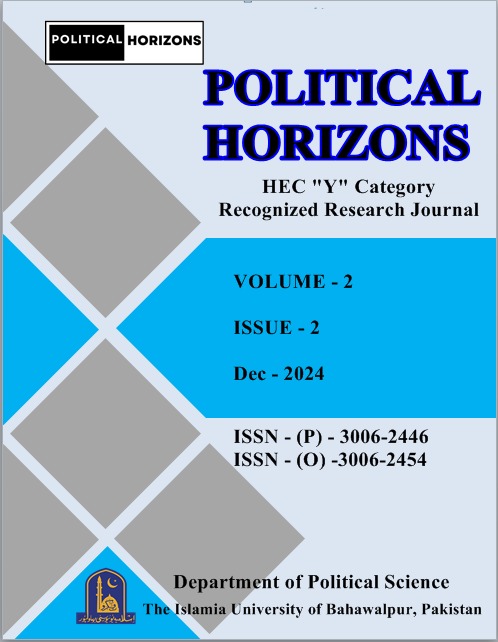Poor Pakistan or Pity Pakistan: A Power Play of Patronage, Politics, and Payola in the Global Scenario Policy and Religious Implications
Abstract
The exercise of patronage politics with massive implications has been widespread often with turmoil. The system of political appointments started off from olden times where a political party, after assuming power gave government jobs to its supporters as an incentive for functioning towards triumph, rather than on merit. There is a history of so many “Ps” in Pakistan for more than six decades. This article explored poor or pity state - the existence, indicators, current situation, effects and consequences of patronage in Pakistan - and the way out. Political patronage contradicts Islamic values of justice, merit, and accountability, as it promotes nepotism and corruption, undermining the state's obligation to serve all citizens fairly. In an Islamic governance framework, public office is a trust that must be granted based on capability and integrity. Patronage politics therefore weakens the moral and functional foundations of a just society as envisioned in Islam.
Keywords: Patronage, Governance, Corruption, Appointment, Violation of merit

Downloads
Published
How to Cite
Issue
Section
License
Copyright (c) 2024 Ayesha Ali

This work is licensed under a Creative Commons Attribution-NonCommercial 4.0 International License.




